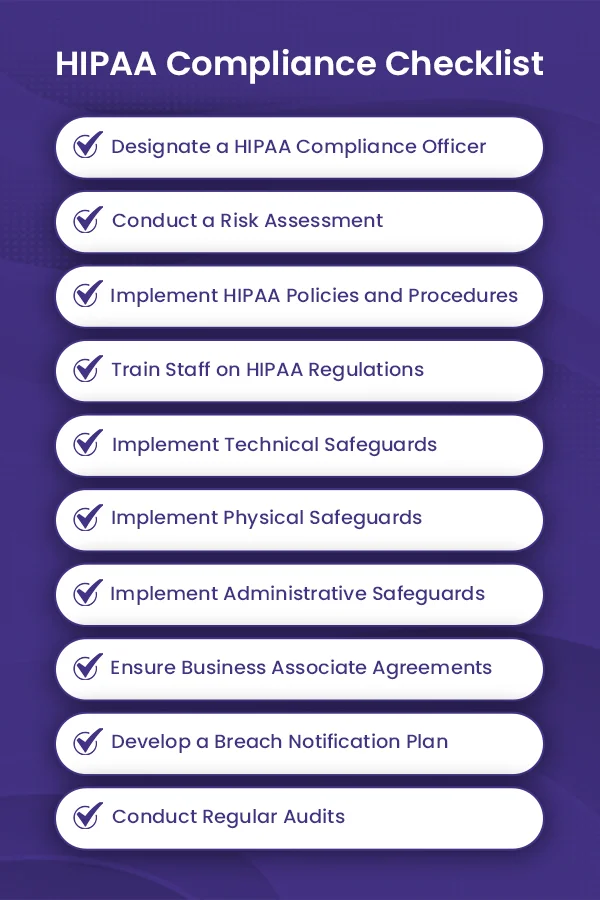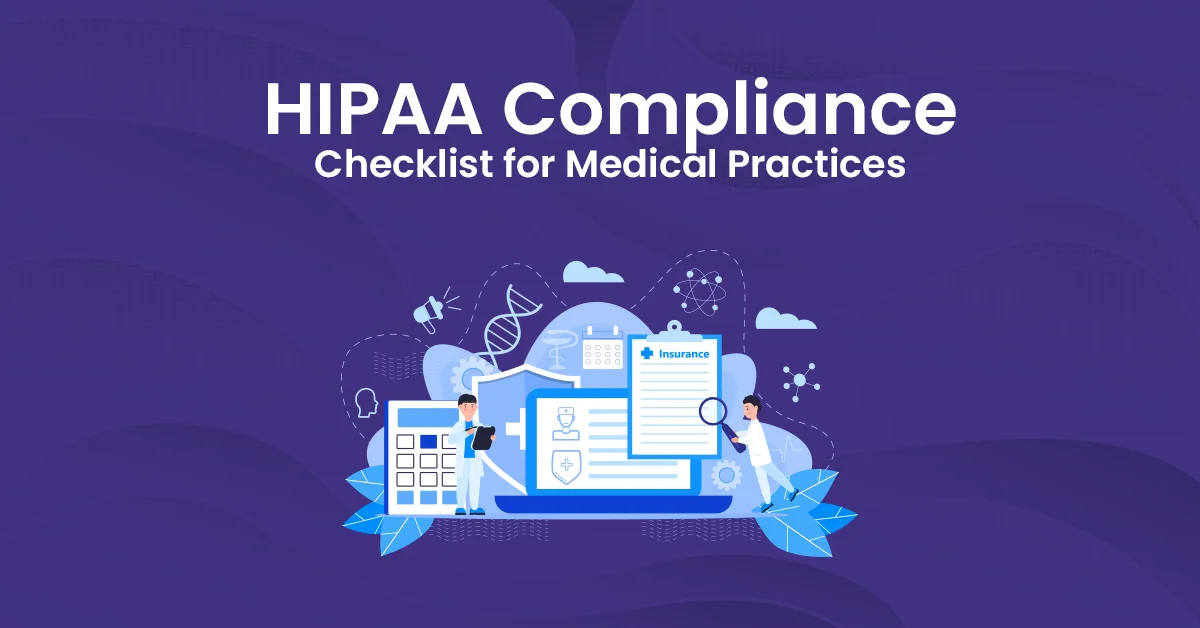Health Insurance Portability and Accountability Act (HIPAA) compliance is essential for any medical practice that handles patients’ protected health information (PHI). A HIPAA compliance checklist can help medical practices follow HIPAA regulations to protect their patient’s PHI (protected health information). There are several factors that providers must have to consider in HIPAA compliance requirements. In this write-up, we will provide a comprehensive checklist for healthcare providers.
HIPAA Compliance Checklist

Designate a HIPAA Compliance Officer
Designate a HIPAA compliance officer responsible for ensuring the medical practice adheres to HIPAA regulations. The compliance officer should understand HIPAA regulations and have the authority to implement policies and procedures to ensure compliance.
Conduct a Risk Assessment
Conduct a comprehensive risk assessment to identify potential risks to PHI. This assessment should be conducted regularly to identify and address any new risks.
Develop and Implement HIPAA Policies and Procedures
Develop and implement HIPAA policies and procedures that cover all areas of the medical practice that handle PHI. These policies should be reviewed and updated regularly to ensure they are up to date and comply with HIPAA regulations.
Train Staff on HIPAA Regulations
Provide HIPAA training to all staff members who handle PHI. This training should cover HIPAA regulations, the medical practice’s policies and procedures, and how to address and protect PHI.
Implement Technical Safeguards
Implement technical safeguards to protect PHI, including access controls, encryption, and firewalls. Regularly review these safeguards to ensure they are effective and up to date.
Implement Physical Safeguards
Implement physical safeguards to protect PHI, including limiting access to areas where PHI is stored and implementing security measures to prevent theft or unauthorized access.
Implement Administrative Safeguards
Implement administrative safeguards to protect PHI, including developing and implementing security policies, regularly reviewing and updating policies, and conducting regular security assessments.
Ensure Business Associate Agreements
Ensure that all business associates who handle PHI sign business associate agreements that comply with HIPAA regulations.
Develop a Breach Notification Plan
Develop a breach notification plan that outlines the steps the medical practice will take in the event of a breach of PHI. This plan should include reporting the violation to the relevant authorities and notifying affected individuals.
Conduct Regular Audits
Conduct regular audits to ensure compliance with HIPAA regulations. These audits should cover all areas of the medical practice that handle PHI and be conducted by an independent auditor.
By following this HIPAA compliance checklist, medical practices can ensure that they protect their patient’s PHI and comply with HIPAA regulations. This will help maintain their patients’ trust and ensure they avoid costly HIPAA violations.




